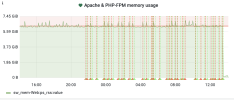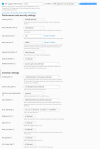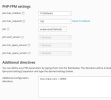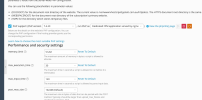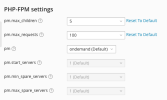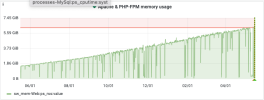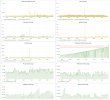excede
New Pleskian
- Server operating system version
- CentOS Linux 7.9.2009 (Core)
- Plesk version and microupdate number
- Plesk Obsidian v18.0.43_build1800220414.18 os_CentOS 7
We need help, and happy to pay for an expert!
Our Apache & PHP-FPM memory usage is constantly being exceeded and we cant see why. We are running wordpress/woocommerce and the server keeps on going down requiring a reboot to refresh the memory. We are on a very fast server with loads of RAM and have tried increasing the limits significantly in the PHP.INI and Plesk setting but same problem prevails.
If anyone can make suggestions to fix this it would be appreciated but we also need an expert to look at the whole server setup, if that's you please get in touch.
Our Apache & PHP-FPM memory usage is constantly being exceeded and we cant see why. We are running wordpress/woocommerce and the server keeps on going down requiring a reboot to refresh the memory. We are on a very fast server with loads of RAM and have tried increasing the limits significantly in the PHP.INI and Plesk setting but same problem prevails.
If anyone can make suggestions to fix this it would be appreciated but we also need an expert to look at the whole server setup, if that's you please get in touch.


